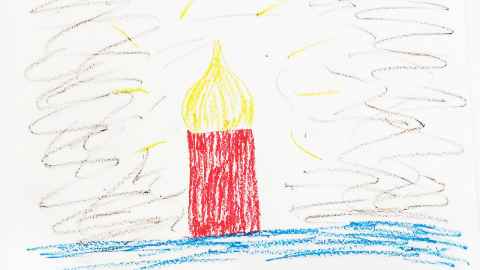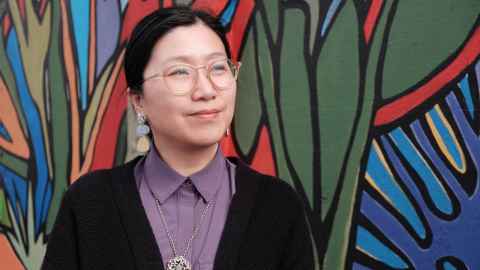Shining a light for Asian survivors of sexual violence
25 November 2025
Understanding the challenges faced by professionals supporting young Asian survivors of sexual violence in New Zealand is the focus of new research from the University of Auckland.

Professionals on the frontline of helping young Asian people who've experienced sexual violence in Aotearoa are facing a significant gap in support, new research has found.
For the project, funded by a Health Research Council (HRC) Activation Grant, lead researcher Dr Ying Wang from the University of Auckland spoke to 29 carers.
These included counsellors, guidance counsellors, psychologists, educators, social workers, peer support workers, legal support providers, and medical practitioners from all over the country.
She wanted to know what conditions were like for them, and what would make the most difference for them as carers; both in terms of providing a better standard of service and developing a more sustainable way of working.
As a key research tool, Wang, a research fellow in the University’s Centre for Arts and Social Transformation (CAST), used arts-based methods like inviting participants to explore their feelings in metaphorical drawings, which she combined with their own words and artworks to collect in a poetry book that accompanies her HRC report on the study.
And through this process many common themes emerged, she says.
“Art allows us to move beyond words, and many participants used metaphors like water, light, trees, and boats to describe their working models as well as their exhaustion, isolation, and the challenges of navigating systems.”

For example, she says, many described feeling like a lone tree offering protection from a storm, a teddy bear offering warmth and calm, despite being small, and a sense of providing sunlight in the darkness or a lifeboat in choppy seas.
Wang says the findings highlight the loneliness and burnout felt by professionals who lack systemic support.
“These images speak powerfully to the emotional toll of supporting survivors with too few resources. Many told us they feel unsupported and overwhelmed. Without cultural safety and competence, embedded at both individual and systemic levels, professionals are left to carry this burden alone.”
She believes the research highlights the urgent need for a systemic approach to cultural competence in education and health services; with teachers and counsellors in particular, reporting difficulties engaging with parents on issues like consent and sexuality education, which remain sensitive in many Asian communities.
Cultural safety, says Wang, involves creating an environment where young people feel respected, valued, and free from being misunderstood because of a clash of background between client and professional; and conversely, cultural competence refers to the professional’s ability to understand and work effectively with clients from diverse cultural backgrounds.
We need joined-up systems that recognise cultural diversity and provide real support for both survivors and those who care for them.
Wang says sexual violence is intersectional, in that it cuts across cultures, gender, and systems, so we can’t address it with piecemeal solutions.
“We need joined-up systems that recognise cultural diversity and provide real support for both survivors and those who care for them.”
Her next project, funded by a Royal Society Mana Tūāpapa Future Leader Fellowship, will focus on improving cultural competence for working with students from Asian backgrounds in schools.
“I see this as part of creating a truly inclusive and equitable education for Asian children and youth in Aotearoa,” she says.
“We need to plant seeds for long-term change. This is not just about responding to crises. Prevention can start from the parent-child relationship, resilience can seed from learning emotional literacy and hope can rise from empathy and compassion.”
In other words, doing important work at the top of the cliff, rather than being the ambulance at the bottom, she says.
Wang stresses the importance of empathy and human connection in all support systems, which she believes is at the heart of the matter.
“Policy makers must understand that professionals need support too. Without empathy and systemic backing, we risk losing the very people who are holding survivors and their families together.”
Wang’s research also touches on wider societal issues affecting sexual violence, including the impact of patriarchal culture, historical trauma, and online narratives that affect youth mental health more generally.
Ultimately, says Wang, this research is about hope.
“Despite the challenges, many professionals have developed some culturally responsive and effective working methods; there is resilience and strength in our communities. Through arts, empathy, and systemic change, we can create spaces where survivors and their carers are truly supported.”
Action points for next steps include:
- Developing a person-centred and youth-led practice
- Fostering cross-sector collaboration and integration
- Embedding cultural responsiveness and representation, which will involve recruiting and training more Asian help professionals
- Engaging family and communities in reducing stigma
- Supporting help professionals’ wellbeing and sustainability by investing in training and supervision
This research builds on a key finding from Wang’s previous project, Asian Sexual Violence Survivors’ Experiences and Expectations of Support within Schools in Aotearoa New Zealand, which identified gaps in support services for young Asian sexual violence survivors in New Zealand.
Media contact
Julianne Evans | Media adviser
M: 027 562 5868
E: julianne.evans@auckland.ac.nz